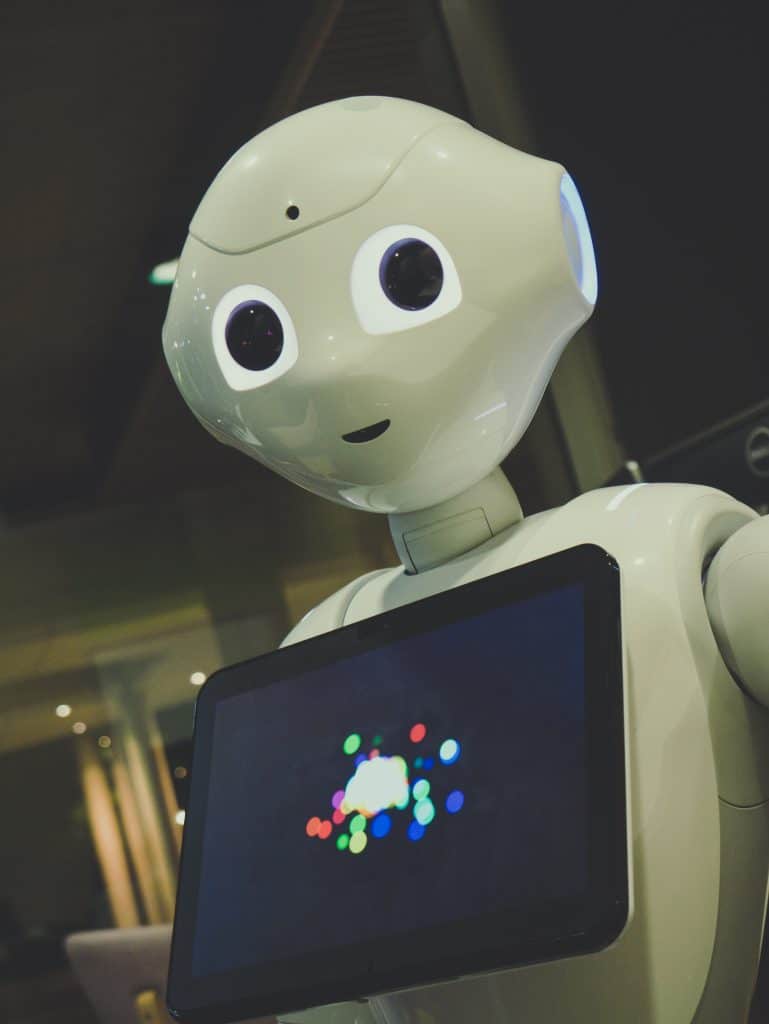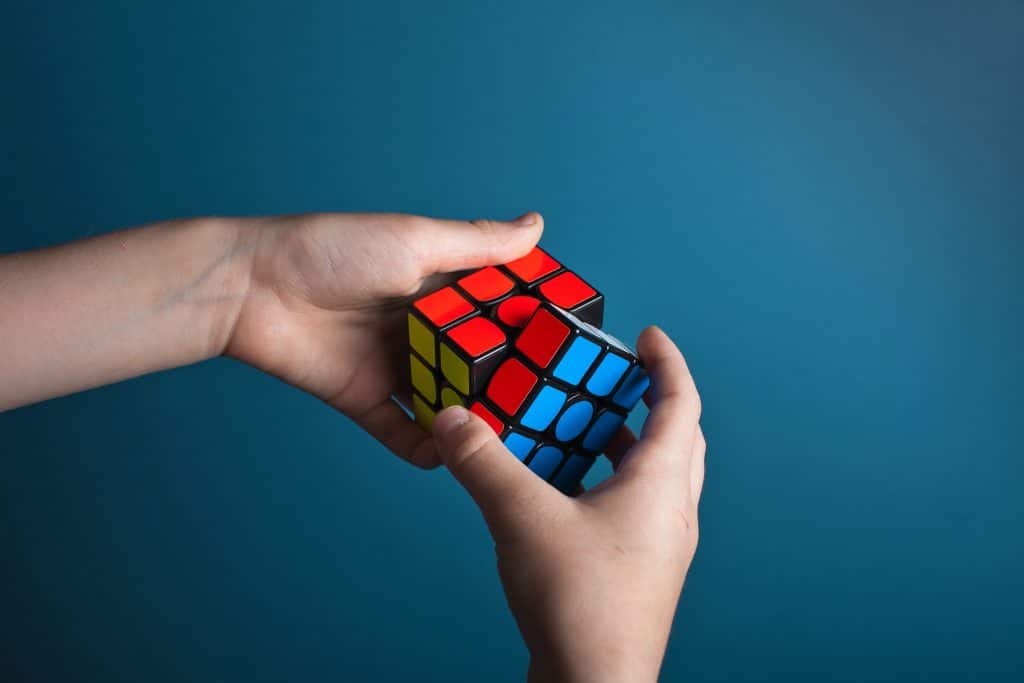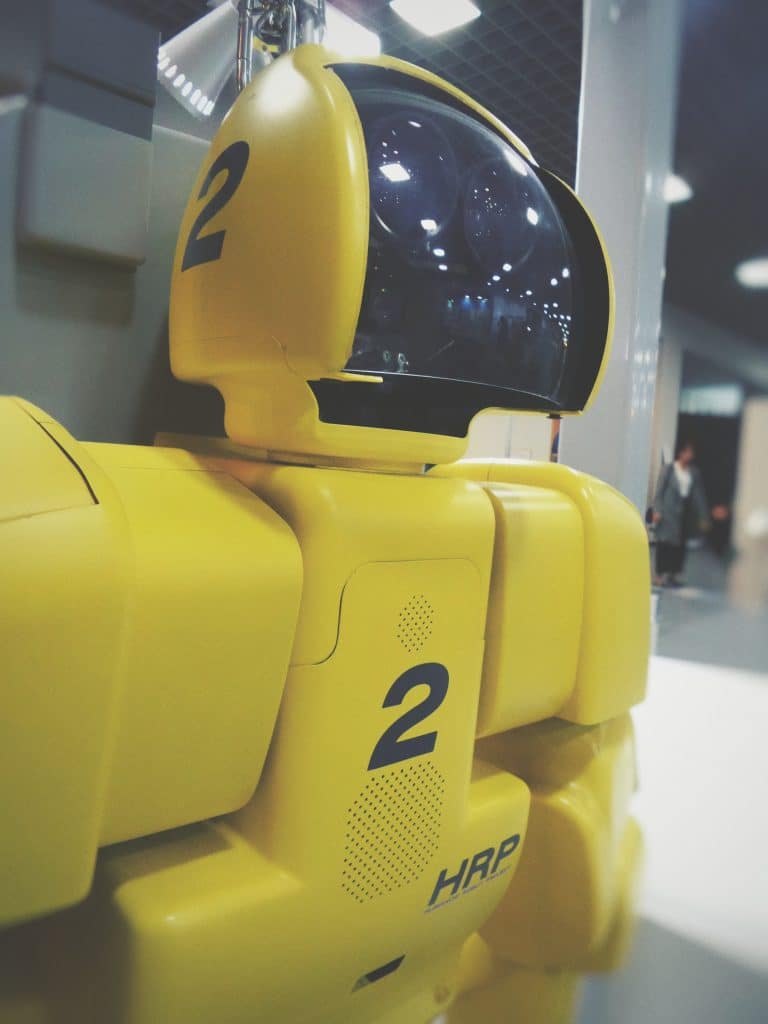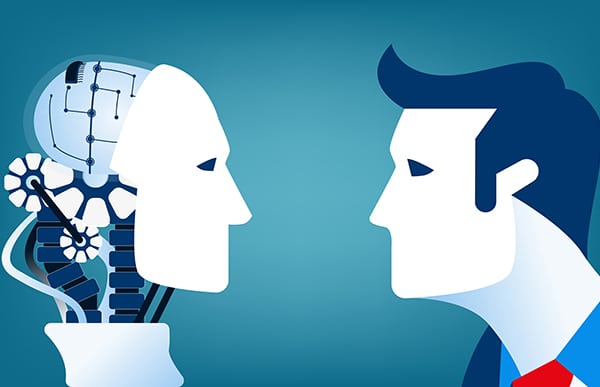Alan Turing, who is the father of artificial intelligence (AI) and theoretical computer science, proposed a test in 1950. It was nothing ordinary as he wanted to test whether computers can “think.” In this test, which later became popular as the Turing test, an evaluator follows a conversation between a machine and a human. The machine gets the tag of an intelligent machine if the evaluator cannot distinguish the machine from a human being. When the question is about AI and human intelligence, there should not be a supremacy factor of who is the ultimate. Let us understand the similarities between both and how they can co-exist.
What Is Artificial Intelligence?
AI is the term that shows the intelligence displayed by machines. The AI programs are designed to replicate or mimic the traits or cognitive behaviors linked with human intelligence. These include problem-solving, learning, and reasoning. As the Application Of Artificial Intelligence is increasing, the future of the human workforce and businesses will witness a major transformation.

There will be a lot of disruption as machines and robots execute the tasks that human beings do. Right from making complex decisions to automate repetitive tasks, AI offers a wide range of opportunities. As AI strengthens further, the world will witness a sea of change that will redefine the way we live.
What Is Human Intelligence?
Human intelligence is basically the quality of the mind based on different factors. Human beings develop their mind based on their past experiences, the handling of theoretical ideas, and adapting to new situations. They use this knowledge to change the surrounding environment. It is possible to get a wide range of information from human intelligence. As human beings grow, develop, and experience the varied environments around them, they gain a lot of knowledge.
What Are The Major Differences Between AI & Human Intelligence?
Here is a list of some major points that describe the important differences between AI and human intelligence.
- Memory: Machines and robots use instructions provided to them by scientists. Human beings make use of content memory and thinking.
- Existence: The designing of AI-based machines and robots involves imitating human behavior. Human beings make use of a variety of cognitive processes to develop and adapt to their environment.
- Learning: The designing of machines and robots allows the execution of specific tasks and it won’t be possible for them to execute other random tasks. Human intelligence can grow and grow over a period of time, based on their experiences.
- Creation: AI, as the name suggests, is artificially and explicitly programmed by humans. Human beings have natural intelligence because they are a creation of God. AI machines and robots cannot work unless human beings program them to work.
- Dominance: AI can beat human intelligence even though humans have only designed it. Machines and robots can store historical data, which assists them in decision-making. We have already seen that a computer can beat a human in online games. It is possible because the computer stores all the past information of human players, which makes it easier for them to predict their moves.

What will be the impact of AI on the Workforce and the Economy?
There are several ways through which AI will redefine the future of the workforce and economies around the world. We list some of them below.
- New Opportunities: There will be a plethora of new opportunities, as AI and machine learning continue to execute tasks that humans perform. With the rapid evolvement of technology, digital engineering is a new domain that has opened up. This means that there will be an evolution of new domains and jobs, even as manual tasks become redundant.
- Automation: It is one of the most obvious effects of AI, which will affect a wide range of industries and processes. Combined with digital transformation, the menial and repetitive tasks, which consume a lot of man-hours, will be done by machines. The machines will not even require any human intervention.
- Innovation: Human beings will have more time on their hands when the mundane and menial tasks get automated and performed by machines. This will give them the time to think creatively and provide innovative solutions to their clients. Machines cannot think innovatively, so human intelligence clearly has an edge here.
- Economy: AI offers a lot of opportunities for businesses to boost their productivity, which can improve their revenue. It can facilitate better growth and improved opportunities for businesses to scale their operations.
- Work: As regular tasks, which are effort-intensive, get automated, it will redefine the roles and responsibilities of employees. They will have to invest their time in innovating their offerings to add more value to their work.
What is the Role of AI in the real world?

AI is nothing but a technology created to make the best use of increasing computing power. It helps in delivering better and faster results because of accurate models and better forecast of operational systems. Even though machines and robots perform tasks with higher accuracy and efficiency, it is important to note that their programming is done by humans. The intelligence of humans is still very crucial in designing and using AI technology.
We will still require human intelligence to adapt and develop with the growing influence of AI and its associated technologies. Even though the technology is growing continuously, we cannot ignore the need for human intervention. Quality assurance will still need human intelligence.
Are Machines Superior To Humans?
The Artificial Intelligence V/S Human Intelligence debate is a never-ending one. It is no doubt that machines are more capable of executing tasks at a faster and efficient rate. However, human beings have the ability to think and apply their knowledge with the help of logic, understanding, reasoning, experience, and constant learning makes them stand apart. Machines get intelligence because humans only designed them. However, for making rational decisions, machine intelligence will fail. Only humans can make decisions that are logical and rational.
Machines react based on what knowledge was fed to them. It is difficult for them to execute any other tasks for which scientists have not programmed them. Additionally, there is a better need for a human approach for real-world scenarios. AI has simplified the tasks of humans in many ways, and it continues to develop with time. However, we must not forget the instances when technology has failed. It only reiterates that human intelligence cannot be ignored completely.
Incidences like the killing of a pedestrian by an Uber self-driving car is shocking and needs to be assessed. The facial recognition tools, which AI powers, are biased towards colored skin tones. There is still a lot that AI specialists need to do to overcome such technical failures. The algorithms and abilities of AI need improvements. There is a need for humans to add natural instincts, reflexes, and intuitions to machines to make them act better in all environments. Timing, precision, human accuracy, and judgment are also other important factors that must be a part of AI algorithms. When improvisation in technology, can help humans and machines to coexist with each other.
Final Thoughts
Artificial Intelligence vs human intelligence is a debatable topic. But it is clear that machines cannot completely overtake humans. The influence of artificial intelligence and machine learning will continue to grow in the coming years. This will lead to a lot of demand for artificial intelligence and machine learning specialists. To meet the industry demands, Great Learning is offering many PG Program in Artificial Intelligence and Machine Learning Course. Great Learning online courses are designed to give a comprehensive learning experience to students. There are various artificial learning courses, applied for AI courses, and AI certificate courses for students. They can undertake these free online courses that are great learning sources of information.













Leave a Reply